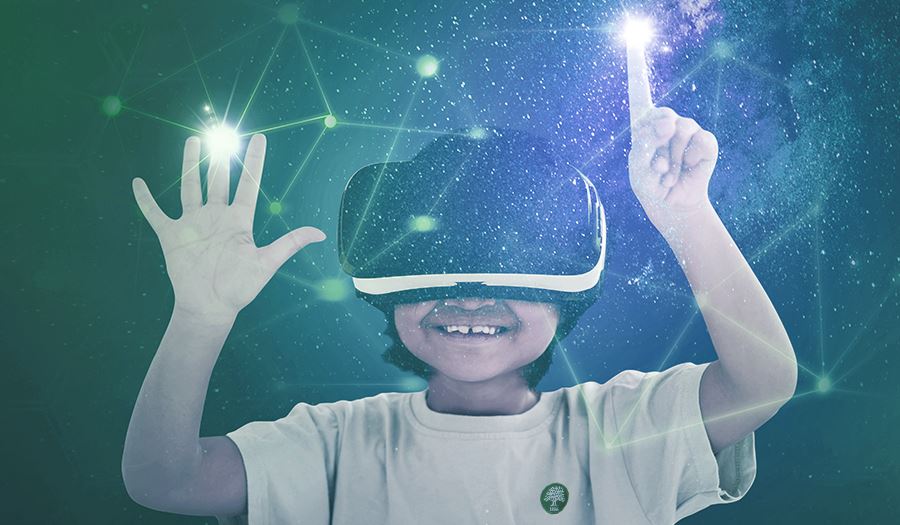
It seems like everywhere you turn, people are talking about the Metaverse. But what exactly is it? And more specifically, will it impact the future of learning?
The word “metaverse” describes a fully realized digital world that exists beyond the one in which we live. It was coined by Neal Stephenson in his 1992 novel “Snow Crash,” and later explored by Ernest Cline in his novel “Ready Player One.”
In many ways, the Metaverse is a convergence of two ideas that have been around for many years: virtual reality and a digital second life.
For decades, technologists have dreamed of an era when our virtual lives play as important a role as our physical realities. In theory, we would spend lots of time interacting with our friends and colleagues in virtual space. As a result, we would spend money there, too, on outfits and objects for our digital avatars.
This understanding of the Metaverse already exists in the gaming industry. The question remains whether the Metaverse will significantly impact other aspects of our real physical lives, such as learning. And the answer depends on who you ask.
We connected with the SABIS® Group Vice President of Information Technology and Digital Publishing to ask how he felt the Metaverse will impact education.
“During the COVID-19 pandemic, we saw a significant shift worldwide to online learning and an increased reliance on technology in teaching,” commented Mr. Bakhos. “But as the education industry embraces new virtual technologies, we cannot ignore the exponential potential the metaverse has and the adverse effects it may have in the classrooms. First and foremost, there is cause for concern that an increased existence in the virtual world may lead to children’s social exclusion. Second, there are still issues of safety, privacy and personal data being compromised. And last, but by no means least, we believe that a lot more work needs to be done in this area to ensure that there is indeed an added-value of implementing the metaverse will bring to the educational and learning processes.”
Ultimately, the metaverse still has a long way to go before it’s fully optimized. And until the concerns are truly addressed, educators will have to proceed with caution given that they have been entrusted with the well-being, both physical and mental, of their students.